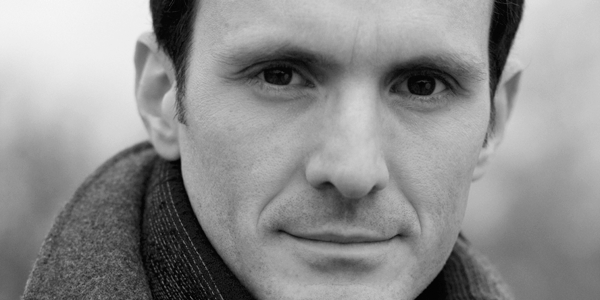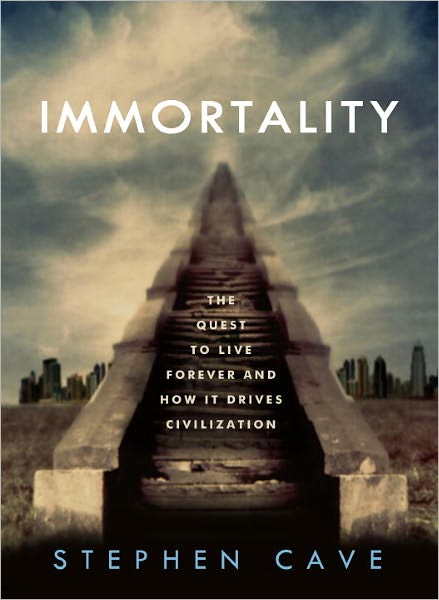About the Book: A fascinating work of popular philosophy and history that both enlightens and entertains, Stephen Cave’s Immortality investigates whether it just might be possible to live forever and whether we should want to. But it also makes a powerful argument, which is that it’s our very preoccupation with defying mortality that drives civilization.
Central to this book is the metaphor of a mountaintop where one can find the Immortals. Since the dawn of humanity, everyone – whether they know it or not – has been trying to climb that mountain. But there are only four paths up its treacherous slope, and there have only ever been four paths. Throughout history, people have wagered everything on their choice of the correct path, and fought wars against those who’ve chosen differently.
While Immortality takes the reader on an eye-opening journey from the beginnings of civilization to the present day, the structure is not chronological. Rather it is path driven. As each path is revealed to us, an historical figure serves as our guide.
In drawing back the curtain on what compels humans to “keep on keeping on,” Cave engages the reader in a number of mind-bending thought experiments. He teases out the implications of each immortality gambit, asking, for example, how long a person would live if they did manage to acquire a perfectly disease-free body. Or what would happen if a super-being tried to round up the atomic constituents of all who’ve died in order to resurrect them. Or what our loved ones would really be doing in heaven if it does exist. Or what part of us actually lives in a work of art, and how long that work of art can survive.
Toward the the book’s end, we’re confronted with a series of brain-rattling questions: What would happen if tomorrow humanity discovered that there is no life but this one? Would people continue to care about their favorite sports team, please their boss, vie for the title of Year’s Best Salesman? Would three-hundred-year projects still get started? If the four paths up the Mount of the Immortals lead nowhere -- if there is no getting up to the summit -- is there still reason to live? And can civilization survive?
Immortality is a deeply satisfying book, as optimistic about the human condition as it is insightful about the true arc of history.
About the Author: Stephen was born in Cornwall, in the beautiful but rainy Southwest of England, back in the days when Stevie Wonder and Steely Dan were topping the charts.
After a decade studying and teaching philosophy, he was awarded his PhD in metaphysics from the University of Cambridge in 2001. Before dedicating himself to writing, Stephen worked for the British Foreign Office, negotiating international treaties on behalf of Her Majesty.
Stephen has since written well-received essays, features and reviews on many philosophical, ethical and scientific subjects, from human nature to robot warriors and animal rights. He writes regularly for the Financial Times, and has also written for the New York Times, the Guardian, Wired, and others.
His first book, Immortality: The Quest to Live Forever and How It Drives Civilization, was published in English and other languages in spring 2012. Stephen lives in Berlin with his wife, the journalist Friederike von Tiesenhausen, and their two daughters. He speaks fluent German.
My Review: This is a very well-written book that discuss the quest of some individuals or even civilizations to immortality. After a brief introduction talking about Nefertiti, the author split his book in four major parts, depending on the approach he is taking to discuss immortality. First part is called Staying Alive, meaning prolonging physical life, through elixirs, medicines, vitamins, etc. He talks about King on Qin, the construction of the Terracotta's Army and the Great Walls of China and other examples. The second part is called Resurrection and it is based on the Christian belief of reborn in the same body (or a glorified body, as is described on the Scriptures). Here the author uses St. Paul and Frankenstein story as examples of trying to conquer death, if I can say so. Third part is called Soul, meaning that the individual consciousness survives the death of the physical body. In this part he uses Dante Alighieri and Beatrice as examples, as well as Dalai Lama. Fourth part of this books is called Legacy, that has to do with immortality through great deeds or descendants. Examples used are of Alexander the Great and Gilgamesh. And he closes his book with a Conclusion chapter that wraps up his whole analysis.
This is a very entertaining reading that I recommend to the permanent library of all readers that enjoys philosophy and wants to think about their own concept of mortality.
This book was written by Stephen Cave and published by Crown Publishers in April, 2012.
Amazon.com was kind enough to provide this book for me through their Vine Program for reviewing and I was not request to provide a positive review. Opinions expressed here are my own.
If you read this review, fell free to leave a comment!
This is a very entertaining reading that I recommend to the permanent library of all readers that enjoys philosophy and wants to think about their own concept of mortality.
This book was written by Stephen Cave and published by Crown Publishers in April, 2012.
Amazon.com was kind enough to provide this book for me through their Vine Program for reviewing and I was not request to provide a positive review. Opinions expressed here are my own.
If you read this review, fell free to leave a comment!



This is my first time i visit here. I found so many entertaining stuff in your blog, especially its discussion. From the tons of comments on your articles, I guess I am not the only one having all the enjoyment here! Keep up the good work.
ReplyDelete